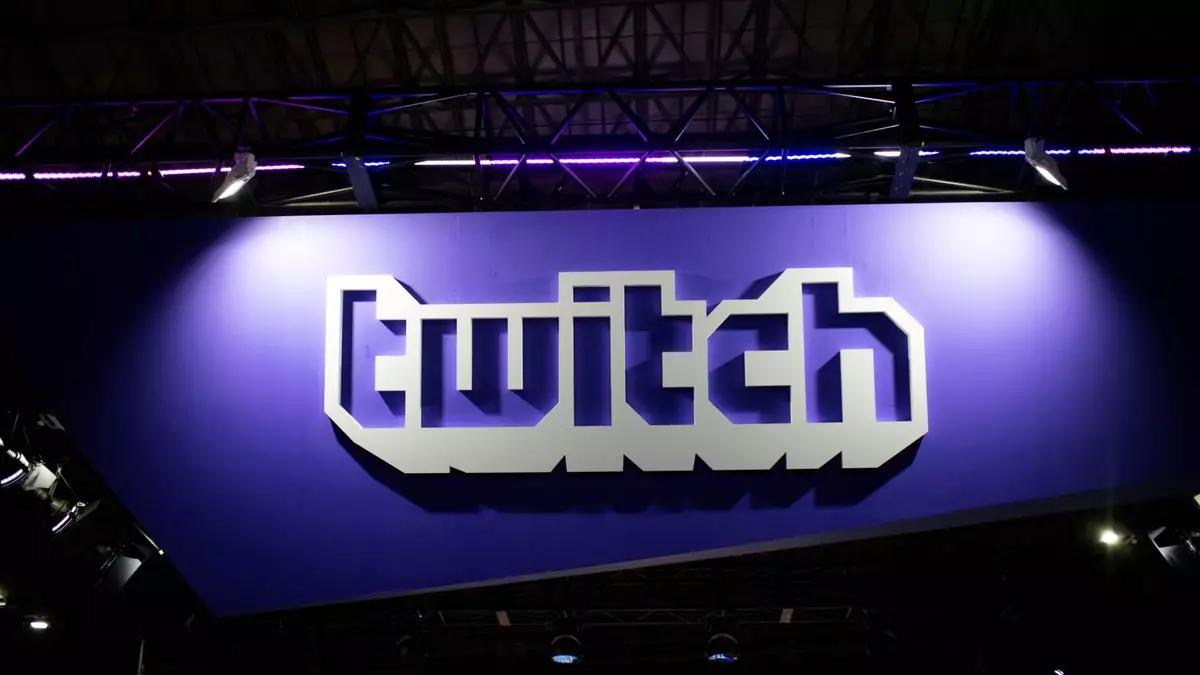In recent weeks, streaming giant Twitch has introduced a new content classification category that addresses discussions surrounding politics and sensitive social issues. This initiative aims to guide viewers away from potentially offensive content about topics like civic integrity, elections, civil rights, and military conflicts. While the intention behind this addition is ostensibly to protect viewers, it raises questions regarding the effectiveness and implications of these guidelines in the broader context of streaming and political discourse.
Historically, Twitch has enforced content classifications for streams containing material deemed inappropriate for a wider audience, including violent gameplay, sexual themes, and drug-related content. The addition of political topics to this list signals an adaptation to the increasingly polarized environment of online discourse. Twitch’s management acknowledges that discussions about sensitive issues may not violate community guidelines yet could be distressing for specific viewers, particularly younger audiences.
Despite these good intentions, the vagueness of the new category presents challenges. Twitch defines this new classification rather broadly, encompassing discussions that range from civil rights protests to commentary on national policies. The ambiguity raises concerns about enforcement consistency and creates a platform for potential bias, making one wonder: how will Twitch determine what qualifies as a sensitive conversation? Uniting educational, neutral discussions with political debates poses a potential minefield that could stifle discourse under the guise of moderation.
This new categorization comes on the heels of heightened scrutiny following several controversial incidents involving both streamers and Twitch’s policy enforcement. Notably, the suspension of popular streamer Zack “Asmongold” Hoyt for a racially charged outburst ignited conversations about censorship and moderation practices. Concurrently, Twitch faced backlash after banning Arab streamers for their participation in a panel ranked by cultural traits, prompting critical discussions around perceived biases in platform governance.
To complicate matters further, Twitch issued an admission of oversight related to signups from Israel and Palestine, which raises questions about its commitment to fostering an inclusive environment. CEO Dan Clancy’s assertion that “racism, hatred, or harassment of any kind” would not be tolerated can sound hollow amid claims of negligence. The effectiveness of these newly minted guidelines hinges on a transparent framework that governs content moderation, ensuring fairness across diverse viewpoints.
Unsurprisingly, the immediate response from the Twitch community has been a mix of skepticism and frustration. Many streamers who engage in political topics have voiced concerns that these changes may hinder their ability to express opinions freely. There are legitimate fears that these labeling requirements, rather than fostering responsible dialogue, could inadvertently shield harmful ideologies under the guise of sensitivity.
Moreover, the revenue implications of content labels have been highlighted by streamers who depend on advertiser support. Twitch’s move may inadvertently alienate advertisers, leading to loss of income for streamers focusing on socially relevant topics. Such a move raises ethical questions regarding the commercialization of speech: Should streamers be penalized for discussing essential issues that may not fit neatly into Twitch’s newly defined parameters?
While developing content guidelines can be an essential measure to protect users, Twitch’s approach seems hasty and reactive rather than proactive. Instead of merely implementing blanket policies, a more nuanced strategy that engages community stakeholders in the decision-making process could lead to a healthier discourse. A clearer definition of terms such as “neutral educational content” could empower streamers to navigate these guidelines effectively without compromising their expression.
Additionally, creating an appeals process for streamers concerned about unjust labeling could enhance trust in Twitch’s moderation practices. Such improvements would demonstrate a commitment to equity in regulation while affording streamers the freedom to operate within their respective ideological frameworks.
The introduction of content classification labels on Twitch speaks to a growing recognition of the platform’s role as a space for complex social discourse. However, the execution of these guidelines will be crucial in determining their success or failure. As Twitch continues to evolve, it is imperative that the platform develops a regulatory framework that allows for open expression while also safeguarding users from harmful rhetoric. The way Twitch moves forward from this point will serve as a litmus test for its commitment to nurturing a multifaceted and inclusive digital environment.

